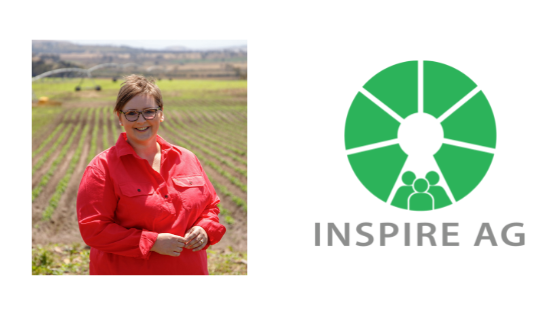We are all guilty of it.
Pulling long hours and pushing ourselves too hard at work. There's pressure to beat the weather, chase a market opportunity, or save a few dollars on staff.
While we can do it on the odd occasion, it's not a sustainable solution. It's also not good for the health of your people, production or profit. Left unmanaged, worry, lack of sleep, and fatigue affect our ability to function properly and impact our mental health.
Some of the early signs that work may be impacting our psychological health are the inability to concentrate on simple tasks, difficulty making effective decisions, being unusually emotional, or leaning on things like food or alcohol when things go 'pear-shaped’.
With one in six working-age Australians experiencing anxiety or depression, work-related mental health issues are becoming a significant concern for workplaces.
Mental health issues cost Australian businesses about $13.2 billion each year. Aside from compensation for work-related injuries, the cost also comes from employees using sick leave, increased staff turnover, more safety-related incidents and presenteeism (when someone works less productively while not well).
To do their best work, people need to feel secure and safe in their workplace. Regardless of size, every business has a responsibility to ensure its people are safe from physical and psychological harm.
Physical safety is well understood in agriculture because it is heavily backed by legislation. Australian farms have improved the culture of safety in recent years. However, there is still more work to do, particularly when you look at data released by Farmsafe Australia.
Agriculture employs only 1.7% of the Australian workforce but accounts for 14% of all workplace fatalities – 91% of the fatalities were men!
Why is Psychological Safety important?
Amy C. Edmondson is a pioneer in the area of psychological safety. She says that if a work environment has psychological safety, everyone on your team can voice ideas, ask questions, raise concerns or point out mistakes without being disciplined or humiliated.
When someone has to constantly scan for threats, they use mental and emotional energy to self-protect. Employees cannot be productive when using all the bandwidth they have just to make sure they don't say or do the wrong thing.
When it comes down to it, we are responsible for the workplace environment we create. The beautiful thing is that, when done well, the 'fluffy stuff' really can positively impact your bottom line.
Research from SafeWork NSW found that every $1 spent on mental health services at work can achieve an ROI of up to $4.
Psychological safety underpins a business culture, and the culture of a business is based on what the team believes, how it behaves and why decisions are made. It's kind of like an ecosystem – you need both physical and psychological safety for it to work effectively.
Psychological safety is a favourite topic because it is a foundation for optimum performance in business. It's an area that is less understood than physical safety, but when it's present, workplaces are productive and focused.
Psychological hazards can be managed using the same risk management process businesses use to manage physical threats.
-
Identify the threat or risk
-
Evaluate the likelihood (low, medium, high)
-
Mitigate the risk to reduce the impact
-
Monitor progress (and re-evaluate if needed)
-
Communicate the effectiveness of the strategy to your team.
How a good culture supports workers.
A good culture engages your people to perform to the best of their ability. If your culture isn't strong, it can be used as an excuse by those involved in your business for not achieving the standards of conduct you expect.
So, how do you know if you have a healthy culture? Some indicators are:
-
Shared beliefs
-
Alignment to a common purpose
-
High levels of trust
-
Constructive conflict
-
Everyone feels valued.
It would be fair to say that running a business or navigating succession planning is stressful and can highlight mental health issues.
However, if you foster an environment that values physical and psychological safety, you will create a work culture where your people can engage in open and respectful dialogue. Helping boost your business's performance and profitability.
Topics: Farm Safety Week
---
Sally Murfet is the Chief Inspiration Officer at Inspire AG. She is a certified human resource management professional who supports Australian farmers and agribusinesses grow their business through the power of people.
Disclaimer: Content on this website may be of relevance to users outside of Australia, but content links and examples are specific to Australia. Please check with your local authority for your country and industry requirements.










